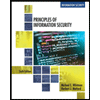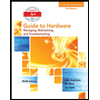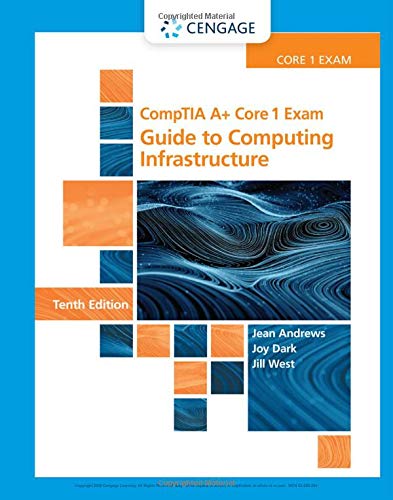6.3A-4. Multiple Access protocols (4). Consider the figure below, which shows the arrival of 6 messages for transmission at different multiple access wireless nodes at times t=0.1, 1.4, 1.8, 3.2, 3.3, 4.1. Each transmission requires exactly one time unit. 1 45 6 t=0.0 t-1.0 t-2.0 t-3.0 t-4.0 t=5.0 For the CSMA/CD protocol (with collision detection), indicate which packets are successfully transmitted. You should assume that it takes .2 time units for a signal to propagate from one node to each of the other nodes. You can assume that if a packet experiences a collision or senses the channel busy and that that node will not attempt a retransmission of that packet until sometime after t=5. If a node senses a collision, it stops transmitting immediately (although it will still take .2 time units for the last transmitted bit to propagate to all other nodes). Hint: consider propagation times carefully here. [Note: You can find more examples of problems similar to this here.]
6.3A-4. Multiple Access protocols (4). Consider the figure below, which shows the arrival of 6 messages for transmission at different multiple access wireless nodes at times t=0.1, 1.4, 1.8, 3.2, 3.3, 4.1. Each transmission requires exactly one time unit. 1 45 6 t=0.0 t-1.0 t-2.0 t-3.0 t-4.0 t=5.0 For the CSMA/CD protocol (with collision detection), indicate which packets are successfully transmitted. You should assume that it takes .2 time units for a signal to propagate from one node to each of the other nodes. You can assume that if a packet experiences a collision or senses the channel busy and that that node will not attempt a retransmission of that packet until sometime after t=5. If a node senses a collision, it stops transmitting immediately (although it will still take .2 time units for the last transmitted bit to propagate to all other nodes). Hint: consider propagation times carefully here. [Note: You can find more examples of problems similar to this here.]
Principles of Information Security (MindTap Course List)
6th Edition
ISBN:9781337102063
Author:Michael E. Whitman, Herbert J. Mattord
Publisher:Michael E. Whitman, Herbert J. Mattord
Chapter6: Security Technology: Access Controls, Firewalls, And Vpns
Section: Chapter Questions
Problem 2RQ
Related questions
Question
![6.3A-4. Multiple Access protocols (4). Consider the figure below, which shows the
arrival of 6 messages for transmission at different multiple access wireless nodes at
times t=0.1, 1.4, 1.8, 3.2, 3.3, 4.1. Each transmission requires exactly one time unit.
1
45
6
t=0.0
t-1.0
t-2.0
t-3.0
t-4.0
t=5.0
For the CSMA/CD protocol (with collision detection), indicate which packets are
successfully transmitted. You should assume that it takes .2 time units for a signal to
propagate from one node to each of the other nodes. You can assume that if a packet
experiences a collision or senses the channel busy and that that node will not
attempt a retransmission of that packet until sometime after t=5. If a node senses a
collision, it stops transmitting immediately (although it will still take .2 time units for
the last transmitted bit to propagate to all other nodes). Hint: consider propagation
times carefully here. [Note: You can find more examples of problems similar to this here.]](/v2/_next/image?url=https%3A%2F%2Fcontent.bartleby.com%2Fqna-images%2Fquestion%2Fce5a209e-ae08-40db-9f30-c4e556d99c4a%2F154291b3-4daf-4c2e-bba4-1e0f639b7e38%2Fnxlqocs_processed.jpeg&w=3840&q=75)
Transcribed Image Text:6.3A-4. Multiple Access protocols (4). Consider the figure below, which shows the
arrival of 6 messages for transmission at different multiple access wireless nodes at
times t=0.1, 1.4, 1.8, 3.2, 3.3, 4.1. Each transmission requires exactly one time unit.
1
45
6
t=0.0
t-1.0
t-2.0
t-3.0
t-4.0
t=5.0
For the CSMA/CD protocol (with collision detection), indicate which packets are
successfully transmitted. You should assume that it takes .2 time units for a signal to
propagate from one node to each of the other nodes. You can assume that if a packet
experiences a collision or senses the channel busy and that that node will not
attempt a retransmission of that packet until sometime after t=5. If a node senses a
collision, it stops transmitting immediately (although it will still take .2 time units for
the last transmitted bit to propagate to all other nodes). Hint: consider propagation
times carefully here. [Note: You can find more examples of problems similar to this here.]
Expert Solution
This question has been solved!
Explore an expertly crafted, step-by-step solution for a thorough understanding of key concepts.
Step by step
Solved in 2 steps

Recommended textbooks for you

Principles of Information Security (MindTap Cours…
Computer Science
ISBN:
9781337102063
Author:
Michael E. Whitman, Herbert J. Mattord
Publisher:
Cengage Learning

A+ Guide to Hardware (Standalone Book) (MindTap C…
Computer Science
ISBN:
9781305266452
Author:
Jean Andrews
Publisher:
Cengage Learning

Operations Research : Applications and Algorithms
Computer Science
ISBN:
9780534380588
Author:
Wayne L. Winston
Publisher:
Brooks Cole

Principles of Information Security (MindTap Cours…
Computer Science
ISBN:
9781337102063
Author:
Michael E. Whitman, Herbert J. Mattord
Publisher:
Cengage Learning

A+ Guide to Hardware (Standalone Book) (MindTap C…
Computer Science
ISBN:
9781305266452
Author:
Jean Andrews
Publisher:
Cengage Learning

Operations Research : Applications and Algorithms
Computer Science
ISBN:
9780534380588
Author:
Wayne L. Winston
Publisher:
Brooks Cole

Systems Architecture
Computer Science
ISBN:
9781305080195
Author:
Stephen D. Burd
Publisher:
Cengage Learning

Comptia A+ Core 1 Exam: Guide To Computing Infras…
Computer Science
ISBN:
9780357108376
Author:
Jean Andrews, Joy Dark, Jill West
Publisher:
Cengage Learning

A+ Guide To It Technical Support
Computer Science
ISBN:
9780357108291
Author:
ANDREWS, Jean.
Publisher:
Cengage,